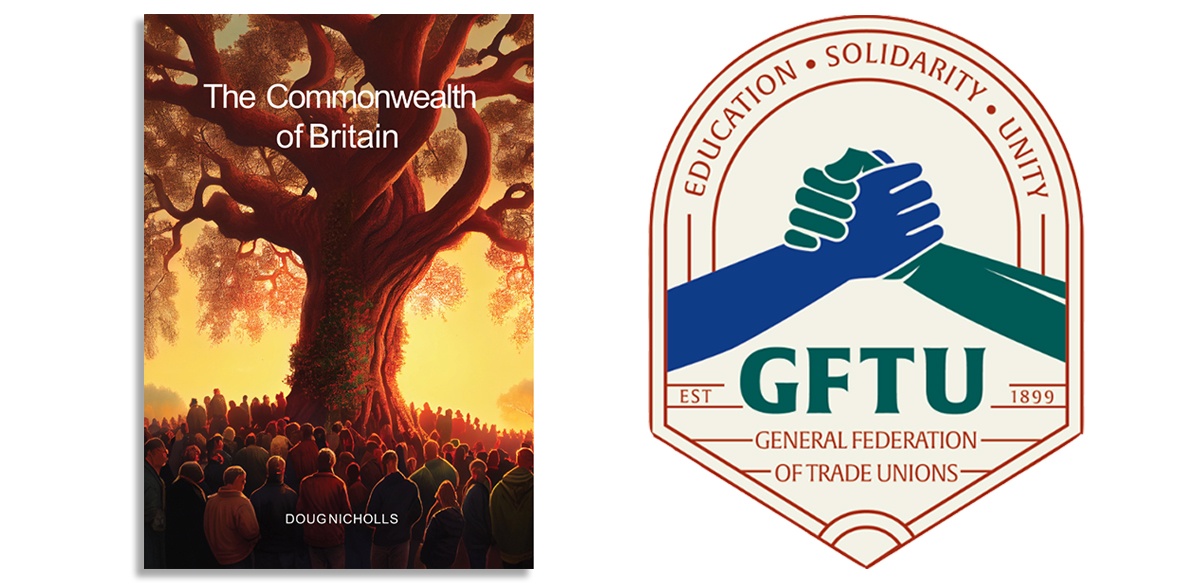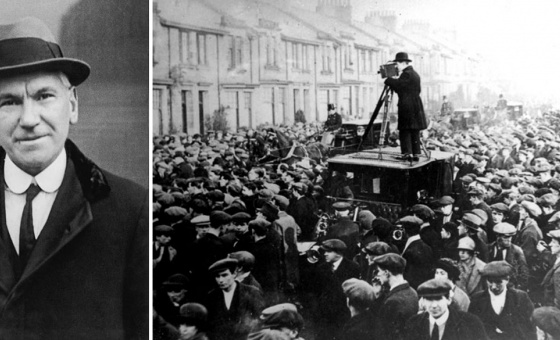This is the last article you can read this month
You can read more article this month
You can read more articles this month
Sorry your limit is up for this month
Reset on:
Please help support the Morning Star by subscribing here
The Commonwealth of Britain
Doug Nicholls, Workable Books, £8.99
THIS IS a volume of rich and lively poetry that draws on the forms and ideas of the English radical tradition – and is bang up to date. This hasn’t been done recently in poetry as accessible as this, possibly because form gets entangled with content in these wide awoke times. There are none of (what have become) the current cliches of identity and belonging in any of these poems, yet many address the themes of ours and theirs through the energy of political struggle and the tenderness of more personal moments. This is not didactic writing as there is a real understanding of the craft of poetry and the energy that comes from commitment.
There is the frightening narrative poem told in Rock Gardens Hotel – we’re really there on this journey through a derelict 1960s seafront hotel; in its foetid rooms a weirdo with Nazi memorabilia is taking a shot at a young man. The rhyming verse is a steady force as we travel almost breathless through the action. This is language that stalks and flies.
Elsewhere Nicholls is roaming the English countryside in Welfare State Britain, as in the poem Home County. This countryside rummage generates some beautiful imagery which flows throughout the collection.
“Scrambled the styles, then black berried
As though plucking full stops from the Bible”
“When grey pellets thudded the brilliance of a bird.
Fumbled white flight in bursting blood.”
These poems are rooted in post-war working-class history and culture. Expressions of intimate family moments are universally experienced. The personal writing is akin to portrait painting. A painter would take time and look and modify or extend and Nicholls’s language is doing the same thing, particularly in the personal pieces about a marriage and new family. Affecting are First Feelings (about holding a grandchild for the first time) and the poem Yes. There’s a yes to life and the struggles for individual and collective fulfilment.
There is also cellular intimacy in Trundle Hill Kestrel, a piece about letting go of a mother’s ashes. This is all deeply relatable. Blake’s Oak romps through the history of dissenting England and the finale poem Captain Swing’s Trees reminds us of the guerilla warfare that once raged in our rural lanes.
The Commonwealth of Britain extends the red thread going back to John Ball and William Langland and Julian of Norwich, a political poetic continuity that asks what is a country and who is it for?
Very unusually for a book of poetry, it was written as a fundraiser for the General Federation of Trade Unions Educational Trust to support free adult learning in the unions. It is available online from the GFTU shop priced £8.99.












